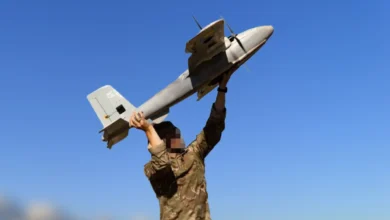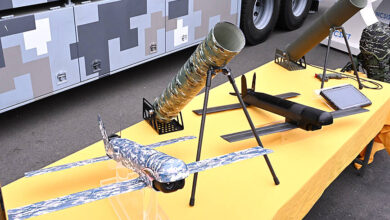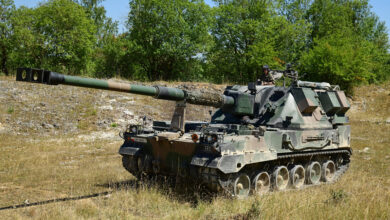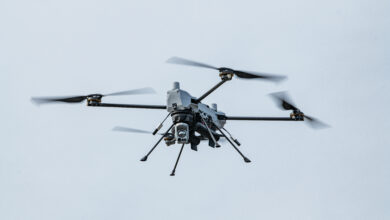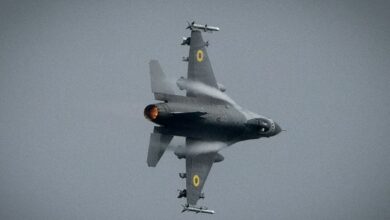Russia has developed a new system for transporting multiple combat FPV (first-person view) drones nearer to their targets.
Spokesperson Dmitry Zubarev from Russian firm Svyaz Spetszashchita told state-owned TASS that the “Admiral-Aircraft Carrier” system can dispatch one or two drones toward the intended destination to carry out precision strikes.
It has a relay station that supports a new mechanism for releasing compact strike FPV unmanned aerial vehicles (UAVs).
The new transport system is based on Moscow’s Admiral aircraft-type UAV and can remain aloft for up to six hours.
Russia's Svyaz Spetszashchita has developed the "Admiral-Aircraft Carrier" system designed to transport several FPV drones on a fixed-wing UAV. Not a new concept, but a first from the Russian defense-industrial complex. Apparently, this system will soon be tested in Ukraine. pic.twitter.com/g4IvalZHNT
— Samuel Bendett (@sambendett) August 22, 2023
According to Zubarev, the newly developed platform can expand the FPV’s operational range, typically only five kilometers (3.1 miles).
He stated that the system was crafted to support combat operations and protect territories.
Testing in Ukraine
Apart from launching UAVs, the Admiral-Aircraft Carrier system can conduct surveillance and reconnaissance to identify potential targets.
It can patrol an area of around 20 square kilometers (7.7 square miles).
Zubarev said there are plans to deploy the new transport system in Ukraine to assess its capabilities and support the invading forces.
Russia is reportedly negotiating with various battalions and units that need the new technology.
The first units are expected to be dispatched for testing in September.
A Significant Advantage
FPV drones boast powerful warheads that can destroy enemy vehicles and penetrate buildings.
With the help of skilled pilots, the UAVs can stay in one place or move through the air with high speed and accuracy.
But despite their improved agility, FPV systems cannot cover a vast distance.
Having a carrier to transport them over long ranges would provide the Russian military with a significant advantage on the battlefield, according to Zubarev.



